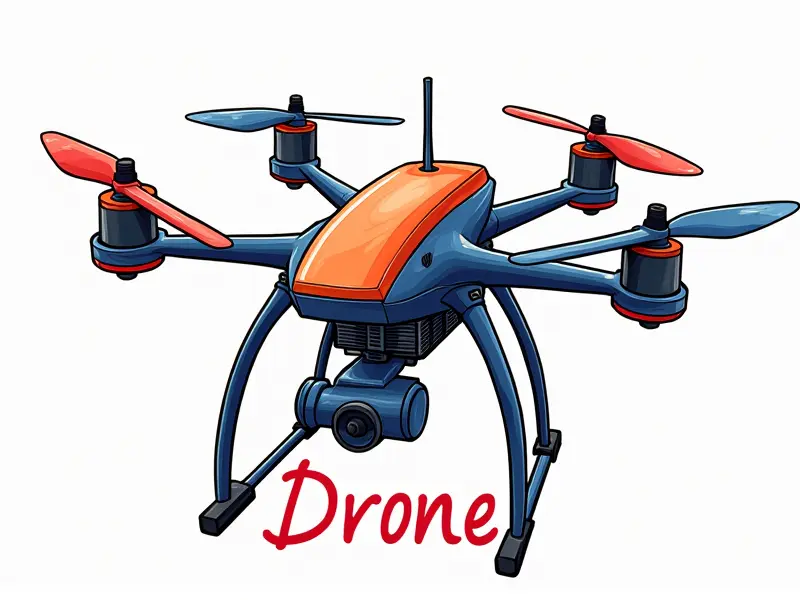Which motor for drones?

Choosing the right motor for your drone is a critical decision that can significantly impact its performance, efficiency, and durability. Whether you're building an FPV racing drone or a heavy-lift quadcopter, selecting the appropriate motor is essential to achieving optimal flight characteristics. This article will guide you through the various types of motors available and help you make an informed choice based on your specific needs.
Best Motors for FPV Racing Drones
FPV racing drones demand high performance and agility, making them ideal candidates for brushless outrunner motors. These motors are known for their lightweight design and ability to handle high RPMs without compromising power output. Popular choices include the EMAX MT2217-13 and T-Motor F50.
Top Brushless Motors for Quadcopters
Quadcopter drones often require motors that balance power, efficiency, and reliability. The best brushless motors for quadcopters include the EMAX MT2217-13, T-Motor F50, and DYS 2208 series. These motors are designed to provide a perfect blend of thrust and durability.
Choosing the Right Motor for RC Helis
Selecting the right motor for remote-controlled helicopters is crucial due to their unique flight dynamics. Inrunner brushless motors, such as those from EMAX or DYS, offer high torque and stability, making them ideal for heli applications.
High-Torque Motors for Heavy Payloads
Drones designed for heavy lifting require robust motors capable of generating substantial thrust while maintaining efficiency. High-torque motors like the T-Motor F70 or EMAX MT2816-13 are excellent choices, providing reliable performance even under significant load.
Efficient Motors for Beginner Drones
Beginner drones often prioritize ease of use and cost-effectiveness over high-end features. Efficient motors like the DYS 2204 or EMAX MT2217-13 offer a good balance between performance and affordability, making them suitable for novice pilots.
Quiet Motors for Stealthy Drone Flights
For applications requiring low noise levels, such as aerial photography or surveillance, quiet motors are essential. The EMAX MT2816-09 and DYS 2304 series provide excellent performance while minimizing acoustic signatures.
Lightweight Motors for Miniature Drones
Miniature drones benefit from lightweight motors that maximize flight time and maneuverability. Motors like the DYS 2208 or EMAX MT1806 offer a compact design without sacrificing power output, making them ideal for small-scale applications.
Powerful Motors for Large RC Airplanes
Larger remote-controlled airplanes require powerful motors to generate sufficient thrust. High-performance brushless motors such as the T-Motor F70 or EMAX MT2816-13 are well-suited for large-scale aircraft, providing robust performance and reliability.
Reliable Motors for Beginner FPV Pilots
Beginner FPV pilots often seek reliable motors that offer a good balance of power and ease of use. The EMAX MT2217-13 or DYS 2208 series are excellent choices, providing consistent performance and durability.
Fast vs. Efficient Drone Motors Explained
The choice between fast and efficient motors depends on the specific requirements of your drone project. Fast motors deliver high RPMs but may consume more power, while efficient motors prioritize energy conservation at the expense of peak speed. Understanding these trade-offs is crucial for optimizing performance.
Torque and RPM in Drone Motors
Understanding torque and RPM (revolutions per minute) is essential when selecting a motor for your drone. Torque measures rotational force, while RPM indicates how quickly the motor spins. A higher torque motor provides better acceleration and lifting capacity, whereas high RPM motors offer faster speeds but may be less efficient.
Conclusion
Selecting the right motor for your drone is a vital step in achieving optimal performance and reliability. Whether you're building an FPV racing drone or a heavy-lift quadcopter, choosing the appropriate motor can make all the difference. By considering factors such as torque, RPM, efficiency, and power output, you can ensure that your drone meets your specific needs and delivers exceptional results.

